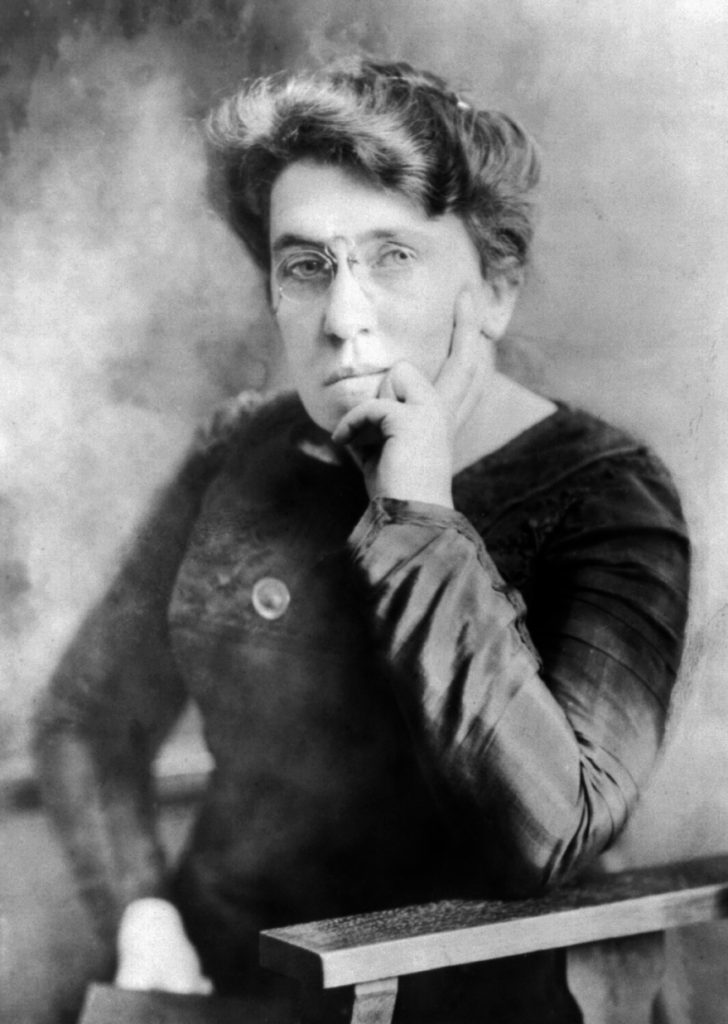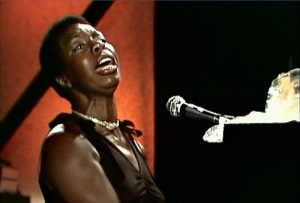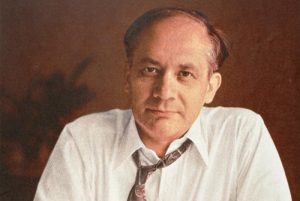Winner of the Spring 2017 StMU History Media Awards for
Best Article in the Category of “Gender History”
Emma Goldman, who would later in life be a known anarchist and women’s rights activist, had a very dismal beginning to life. Emma Goldman was born on June 27, 1869 in Kaunas, Lithuania, which was then known as Kovno, Lithuania. The dynamic of the family was unique as well, as Emma had two older sisters who were born from her mother, Taube Binowitz Zodikow, from her first marriage. Taube’s first husband and father to her two eldest daughters, Helena and Lena, passed away leaving Taube a widow. From this death, Taube entered into an arranged marriage with Abraham Goldman, resulting in the birth of Emma. During Emma’s childhood, she endured beatings from her father frequently, and her mother offered her no comfort. With this constant abuse and no support, Emma felt no sense of security in her household. This brought Emma into being raised with relatives in Königsberg, Germany. But in time Emma returned to the house of her parents Taube and Abraham, as being raised by the relatives in Germany was, if anything, worse by Emma’s standards, as she endured further neglect and abuse. But shortly after returning to her parents, they all moved to Königsberg, Germany, where Emma was luckily able to attend school. While she attended school in Germany, she became close friends with a teacher who gave her a first look into a new world she had never known of before. Music and literature came into Emma’s life and both proved to be lifelong loves of hers.1

Emma’s life took a drastic turn in 1881, when her family decided to move again, this time to St. Petersburg, Russia. In Russia, the Goldmans suffered financially and because of this drawback, Emma could no longer attend school. Money aside, her father did not support Emma’s schooling, as he believed there was no need for a woman to have any schooling. Emma’s love for learning and hope of becoming a doctor had been shattered right in front of her, yet she still remained on a path like no other. She became rebellious of her father’s ideals and his cultural traditions, including the Jewish faith. Emma Goldman had become introduced to the ideas of radicalism and she became further knowledgeable on a wider variety of subjects. A main source of inspiration for Emma was reading Nikolay Chernyshevsky’s novel What Is to Be Done? A character in the novel, Vera Pavlovna, gave inspiration and hope to Emma. Emma’s father had begun arranging for her to be married, but as Emma read of Vera’s idea that “rejected this practice as it is the auctioning of a sex object,” Emma, too, became a strong believer in rejecting arranged marriages.2
Emma was in despair at the life she had set out before her, so in 1885, she and her sister Helena moved to the United States. While Emma hoped for a new world to open up for her in Rochester, New York, her hopes were not met. Her parents had followed her and her sister to the United States, and more talk of an arranged marriage was still being discussed. Emma felt trapped. She was still subject to nearly the same low-paying factory work that she had wished to escape by coming to America.3
Then inspiration struck Emma Goldman once again. She had read about the four men who had been executed for the 1886 bombings that had killed several people in Haymarket Square in Chicago. Emma believed that these men had been executed because they were merely suspected of being anarchists, and that there was no proof that they had actually been the ones who had thrown the bombs. This enraged Emma, as she saw this as an injustice brought upon these men. Emma saw a clear parallel in the way the United States was behaving toward radicals and the way Russia also dealt with radicals. With this fuse lit, Emma became a companion to those who opposed capitalism and the state.4
Emma Goldman, now living in New York’s Lower East Side, became acquainted with two men: Johann Most, the editor of the anarchist newspaper Die Freiheit (Freedom), and Alexander Berkman, a known anarchist figure in the United States. Emma came to see the idea of Anarchism as a “promised society based on judgement and reason.”5

Emma Goldman opposed the idea that corporations and states should hold all of the power and control in society. Schooled on Johann Most’s teachings on anarchism, Emma took to public speaking. In 1890, Emma was elated to find how effective she was at inspiring others. Emma spoke in both Yiddish and German, and one of her driving purposes was to provoke change in workers’ working conditions. She spoke of how miserable life was for these workers, working for companies with managers that saw them as merely interchangeable parts in a big machine.6
In time Emma became a natural speaker, and she branched out into discussing even more topics. She began to speak out about women in a way that had rarely been vocalized in public. She became an advocate for sexual and reproductive freedom for women. By 1900, birth control was becoming more openly discussed in public, and this discussion of birth control drew criticism. Many viewed discussing birth control in public as being obscene and indecent, and some women were even punished for speaking about this “indecency.” Emma Goldman let her voice be heard in this area, and she began to address larger and larger crowds. The more concerns she brought to her listeners’ attention, the more ears she attracted. She was a woman, center stage, and this made her stand out even more, as men could not speak so personally and intimately on this issue as she could.7

One thing limiting Goldman’s audiences was her choice in addressing them in German and Yiddish. When she began addressing them in English, she attracted even more listeners, and from a wider variety of backgrounds as well. With this growth in popularity, her name also became known to the police. They attempted to silence Emma, and even sentenced her to a full year in prison in 1893 for doing nothing more than speaking at a rally for the unemployed. This arrest did not silence Goldman, as she exclaimed that these government authorities “can never stop a woman from talking.”8 This year of detainment put no damper on Goldman’s goals, as she swore her life to teaching the principles of anarchism, and foremost to encourage others to question authority. To make matters worse for Emma’s standing, the population at large believed that anarchists were simply provoking senseless violence, as seen in the assassination attempt on Henry Clay Frick in 1892 by Emma’s close friend, Alexander Berkman, and the actual assassination of President William McKinley in 1901, who was shot by anarchist Leon Czolgosz. Goldman did not want this image of anarchism to be the accepted image, and she continued to speak openly in defense of anarchism. To make matters even worse, Goldman, who had been acquainted with Czolgosz, was being held in police custody for her supposed involvement in the assassination of McKinley. She was detained for two weeks before her release, as no evidence was found linking her to the crime.9

She continued to lecture, but with each arrival she did not know whether an arrest was imminent, or if she would simply be locked out of the premises she was meant to speak in. As the United States entered World War I, Emma Goldman’s lectures were seen as a threat to national security. After spending eighteen months in prison, she faced immediate deportation to Russia. Back in Russia, Goldman found herself practically and completely miserable. Her anarchist ideas were not accepted in Leninist Russia, and she felt betrayed and rejected. And now Emma faced another hatred: antisemitism. Emma was now being viewed and looked at solely because of her Jewish background. With the rise of anti-semitism came another threat: totalitarianism. Goldman saw this threat and took action. She now began to lecture on totalitarianism, and how she identified it in the forms it had been taking in Italy and Germany.10
“The most violent element in society is ignorance.”
Emma Goldman could not escape the title people gave her as being just another “Jewish woman.” Criticism came to her because of this and she even stated, “life was linked with that of the race.”11 On the contrary, Emma Goldman kept her head up. Candace Falk says Emma envisioned herself as “a woman who could transcend the boundaries imposed by the stereotypical social constructions of religion.”12 Emma would express herself through written word as time progressed. Nearing the last few years of her life, in 1937, Emma showed her concern even more for the striking rise of Nazism. Emma took to writing about this now because of her shock in learning about Adolf Hitler and all that he proposed. She wanted to exclaim how she had fought so hard for the right of a good life for the Jewish community, and she wanted to emphasize how Jewish culture was not to be annihilated, but appreciated for its contributions. She dreaded the future that was to come, and she urged the need for countries to take in Jewish refugees. Only three years later, in 1940, Emma Goldman unfortunately died from a stroke in Toronto, Canada where she lived in hopes that she would be allowed to visit the United States.13

Emma Goldman stood up for many things throughout her life, and did not hide her voice from the crowd. She persevered, she never gave up on her ideas and beliefs. She stood up for those who needed to be heard and she did not apologize for it. She was feared, and she was adored. She, in herself, is a symbol of free expression and through this she wanted people to follow in her footsteps. She wished for a better world for those who were oppressed. She wanted a world where women were looked at as being more than their physical bodies. She fought for equality and she fought for fair treatment. Emma Goldman was a woman who was not afraid to speak when so many tried to silence her.
- Salem Press Biographical Encyclopedia, 2008, s.v. “Emma Goldman,” by Lloyd J. Graybar. ↵
- Salem Press Biographical Encyclopedia, 2008, s.v. “Emma Goldman,” by Lloyd J. Graybar. ↵
- Salem Press Biographical Encyclopedia, 2008, s.v. “Emma Goldman,” by Lloyd J. Graybar. ↵
- Salem Press Biographical Encyclopedia, 2008, s.v. “Emma Goldman,” by Lloyd J. Graybar. ↵
- Jewish Women’s Archive, March 2009, s.v. “Emma Goldman,” by Candace Falk. ↵
- Jewish Women’s Archive, March 2009, s.v. “Emma Goldman,” by Candace Falk. ↵
- Jewish Women’s Archive, March 2009, s.v. “Emma Goldman,” by Candace Falk. ↵
- Jewish Women’s Archive, March 2009, s.v. “Emma Goldman,” by Candace Falk. ↵
- Jewish Women’s Archive, March 2009, s.v. “Emma Goldman,” by Candace Falk. ↵
- Jewish Women’s Archive, March 2009, s.v. “Emma Goldman,” by Candace Falk. ↵
- Emma Goldman, Living My Life (New York: Alfred A. Knopf, 1931), 704. ↵
- Jewish Women’s Archive, March 2009, s.v. “Emma Goldman,” by Candace Falk. ↵
- Jewish Women’s Archive, March 2009, s.v. “Emma Goldman,” by Candace Falk. ↵



124 comments
Gabriela Medrano
It is no wonder I had not heard of Emma Goldman, because woman were not given a voice, not considered an intellect, and who cares for a woman’s opinion right? Well no. I hate that time and time again leaders like Emma Goldman are shut down. Great article, you really incorporated a good story to a time in history where women were considered the lesser. I like your title too, its like yeah watch out for “the most dangerous woman in America” because she has a lot to say and she is not afraid to speak up about what she believes in. Cool topic and good read!
Bailey Rider
While reading this article for the second time, I could really see how detailed and how much hard work you put into this article. You really did do justice to Emma Goldman and all of her work for Women’s rights. She was an amazing woman that dedicated her life to the cause, and was determined even with all of the obstabcles she went through. Thanks again for the fantastic article!
Briana Bustamante
Emma Goldman was a very influential person, especially for women. I really like your title described her as the most dangerous woman in America. I can tell why your article was nominated for Best in “Gender History”. Emma was a firm believer in her beliefs, despite the obstacles she encountered. Over all, very informative article and it was worth reading again!
Priscilla Reyes
Wow! I find it amazing that Emma was informed and a good public speaker, despite being schooled for a short period. It shows that she knew the topic, identified with the issue, and truly cared. She openly spoke against the government and in the end, was deported from the states. I love that you called her a “symbol of free expression,” and find it demonizing that she was denied of so much, because of her gender and race.
Mario Sosa
It is quite amazing how Emma Goldman has been alive to see many different ideologies being established throughout the years. Indeed Goldman lived a hard life, being viewed as an anarchist by the public. Despite receiving so much criticism, she still managed to defend her views and still managed to make a positive impact on people. I enjoyed reading this article, superb job!
Jennifer Pogue
Truly amazing article. ““The most violent element in society is ignorance,” is so true and is one of my new favorite quotes. Emma is truly an inspiration and I thank her for being one of the first public advocates of woman’s rights. That said, I think it is strange she is not talked about more. Her story reminds me not to go with what is normal in my family/society and to do what is right.
Nataly Solis Chavez
Gabriela, thank you for providing such an interesting topic. Truthfully speaking the title of your article immediately caught my attention. Emma Goldman truly was such an influential important woman in history and I’m surprised we’re not taught about her in grade school. She should be seen as a role model for setting such high standards and believing in herself. I loved everything about your article!
Samuel Sanchez
Very informative article. I never heard of Emma Goldman but after reading your article I wish I had known about her sooner. She was such an influential person I am surprised we are never taught about her earlier on for school. She understood how society was and that was probably due to her background of what she had to endure. Her background was linked to how firm she was on her beliefs, she did not want to back down. If it wasn’t for her stroke she probably would have done so much greater things. Overall, great work.
Nahim Rancharan
This was a very interesting and informative article given that i did not know much about Emma Goldman before. Although she was labelled as an anarchist, it seems like she is more of an advocate for freedom of speech and the dignity of the human person. She seems like a very influential person when it comes to women’s rights, especially with her advocacies of viewing woman as more than physical beings. What is appreciative of Emma is that she persevered despite the difficulties that came her way and that is an important lesson for many influential minds around the world. Great Job!
Bailey Rider
This was such and interesting and inspiring article! It was so interesting to learn about how she fought for women’s rights and anarchist ideals. I love that she talked openly about women’s reproductive rights and birth control, even though it was a very controversial and private topic. It’s crazy that she was arrested for a year with no crime! With her background, it’s very amazing that she stood her ground and stood up for her ideals and values. This article was wonderfully written, thank you!